- Home
- Jr. Horatio Alger
Brave and Bold; Or, The Fortunes of Robert Rushton
Brave and Bold; Or, The Fortunes of Robert Rushton Read online
Produced by Charles Aldarondo, Dave Morgan and the OnlineDistributed Proofreading Team.
BRAVE AND BOLD
Or
THE FORTUNES OF ROBERT RUSHTON
By
HORATIO ALGER JR.
CHAPTER I.
THE YOUNG RIVALS.
The main schoolroom in the Millville Academy was brilliantly lighted,and the various desks were occupied by boys and girls of different agesfrom ten to eighteen, all busily writing under the general direction ofProfessor George W. Granville, Instructor in Plain and OrnamentalPenmanship.
Professor Granville, as he styled himself, was a traveling teacher, andgenerally had two or three evening schools in progress in differentplaces at the same time. He was really a very good penman, and in acourse of twelve lessons, for which he charged the very moderate priceof a dollar, not, of course, including stationery, he contrived toimpart considerable instruction, and such pupils as chose to learn werelikely to profit by his instructions. His venture in Millville had beenunusually successful. There were a hundred pupils on his list, and therehad been no disturbance during the course of lessons.
At nine precisely, Professor Granville struck a small bell, and said, inrather a nasal voice:
"You will now stop writing."
There was a little confusion as the books were closed and the pens werewiped.
"Ladies and gentlemen," said the professor, placing one arm under hiscoat tails and extending the other in an oratorical attitude, "thisevening completes the course of lessons which I have had the honor andpleasure of giving you. I have endeavored to impart to you an easy andgraceful penmanship, such as may be a recommendation to you in afterlife. It gives me pleasure to state that many of you have made greatproficiency, and equaled my highest expectations. There are others,perhaps, who have not been fully sensible of the privileges which theyenjoyed. I would say to you all that perfection is not yet attained. Youwill need practice to reap the full benefit of my instructions. Shouldmy life be spared, I shall hope next winter to give another course ofwriting lessons in this place, and I hope I may then have the pleasureof meeting you again as pupils. Let me say, in conclusion, that I thankyou for your patronage and for your good behavior during this course oflessons, and at the same time I bid you good-by."
With the closing words, Professor Granville made a low bow, and placedhis hand on his heart, as he had done probably fifty times before, ondelivering the same speech, which was the stereotyped form in which heclosed his evening schools.
There was a thumping of feet, mingled with a clapping of hands, as theprofessor closed his speech, and a moment later a boy of sixteen,occupying one of the front seats, rose, and, advancing with easyself-possession, drew from his pocket a gold pencil case, containing apencil and pen, and spoke as follows:
"Professor Granville, the members of your writing class, desirous oftestifying their appreciation of your services as teacher, havecontributed to buy this gold pencil case, which, in their name, I havegreat pleasure in presenting to you. Will you receive it with our bestwishes for your continued success as a teacher of penmanship?"
With these words, he handed the pencil to the professor and returned tohis seat.
The applause that ensued was terrific, causing the dust to rise fromthe floor where it had lain undisturbed till the violent attack of twohundred feet raised it in clouds, through which the figure of theprofessor was still visible, with his right arm again extended.
"Ladies and gentlemen," he commenced, "I cannot give fitting utteranceto the emotions that fill my heart at this most unexpected tribute ofregard and mark of appreciation of my humble services. Believe me, Ishall always cherish it as a most valued possession, and the sight of itwill recall the pleasant, and, I hope, profitable hours which we havepassed together this winter. To you, in particular, Mr. Rushton, Iexpress my thanks for the touching and eloquent manner in which you havemade the presentation, and, in parting with you all, I echo your owngood wishes, and shall hope that you may be favored with an abundantmeasure of health and prosperity."
This speech was also vociferously applauded. It was generally consideredimpromptu, but was, in truth, as stereotyped as the other. ProfessorGranville had on previous occasions been the recipient of similartestimonials, and he had found it convenient to have a set form ofacknowledgment. He was wise in this, for it is a hard thing on the spurof the moment suitably to offer thanks for an unexpected gift.
"The professor made a bully speech," said more than one after theexercises were over.
"So did Bob Rushton," said Edward Kent.
"I didn't see anything extraordinary in what he said," sneered HalbertDavis. "It seemed to me very commonplace."
"Perhaps you could do better yourself, Halbert," said Kent.
"Probably I could," said Halbert, haughtily.
"Why didn't you volunteer, then?"
"I didn't care to have anything to do with it," returned Halbert,scornfully.
"That's lucky," remarked Edward, "as there was no chance of your gettingappointed."
"Do you mean to insult me?" demanded Halbert, angrily.
"No, I was only telling the truth."
Halbert turned away, too disgusted to make any reply. He was a boy ofsixteen, of slender form and sallow complexion, dressed with morepretension than taste. Probably there was no boy present whose suit wasof such fine material as his. But something more than fine clothes isneeded to give a fine appearance, and Halbert's mean and insignificantfeatures were far from rendering him attractive, and despite thetestimony of his glass, Halbert considered himself a young man ofdistinguished appearance, and was utterly blind to his personal defects.
What contributed to feed his vanity was his position as the son of therichest man in Millville. Indeed, his father was superintendent, andpart owner, of the great brick factory on the banks of the river, inwhich hundreds found employment. Halbert found plenty to fawn upon him,and was in the habit of strutting about the village, swinging a lightcane, neither a useful nor an ornamental member of the community.
After his brief altercation with Edward Kent, he drew on a pair of kidgloves, and looked about the room for Hester Paine, the lawyer'sdaughter, the reigning belle among the girls of her age in Millville.The fact was, that Halbert was rather smitten with Hester, and had madeup his mind to escort her home on this particular evening, neverdoubting that his escort would be thankfully accepted.
But he was not quick enough, Robert Rushton had already approachedHester, and said, "Miss Hester, will you allow me to see you home?"
"I shall be very glad to have your company, Robert," said Hester.
Robert was a general favorite. He had a bright, attractive face, strongand resolute, when there was occasion, frank and earnest at all times.His clothes were neat and clean, but of a coarse, mixed cloth, evidentlyof low price, suiting his circumstances, for he was poor, and his motherand himself depended mainly upon his earnings in the factory for thenecessaries of life. Hester Paine, being the daughter of a well-to-dolawyer, belonged to the village aristocracy, and so far as worldlywealth was concerned, was far above Robert Rushton. But suchconsiderations never entered her mind, as she frankly, and with realpleasure, accepted the escort of the poor factory boy.
Scarcely had she done so when Halbert Davis approached, smoothing hiskid gloves, and pulling at his necktie.
"Miss Hester," he said, consequentially, "I shall have great pleasure inescorting you home."
"Thank you," said Hester, "but I am engaged."
"Engaged!" repeated Halbert, "and to whom?"
"Robert Rushton has kindly offered to take me home."
/> "Robert Rushton!" said Halbert, disdainfully. "Never mind. I willrelieve him of his duty."
"Thank you, Halbert," said Robert, who was standing by, "I won't troubleyou. I will see Miss Paine home."
"Your escort was accepted because you were the first to offer it," saidHalbert.
"Miss Hester," said Robert, "I will resign in favor of Halbert, if youdesire it."
"I don't desire it," said the young girl, promptly. "Come, Robert, I amready if you are."
With a careless nod to Halbert, she took Robert's arm, and left theschoolhouse. Mortified and angry, Halbert looked after them, muttering,"I'll teach the factory boy a lesson. He'll be sorry for his impudenceyet."

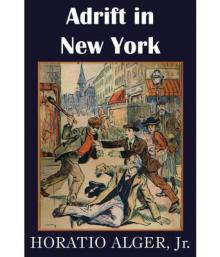 Adrift in New York: Tom and Florence Braving the World
Adrift in New York: Tom and Florence Braving the World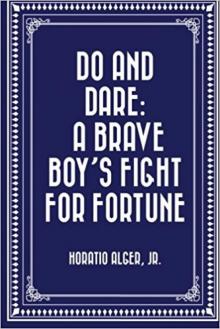 Do and Dare — a Brave Boy's Fight for Fortune
Do and Dare — a Brave Boy's Fight for Fortune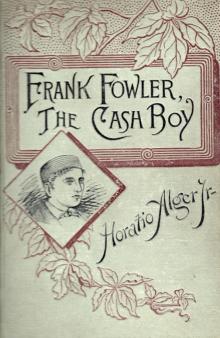 The Cash Boy
The Cash Boy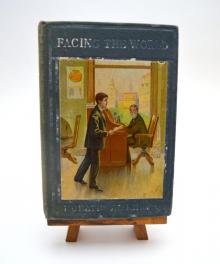 Facing the World
Facing the World The Young Explorer; Or, Claiming His Fortune
The Young Explorer; Or, Claiming His Fortune The Store Boy
The Store Boy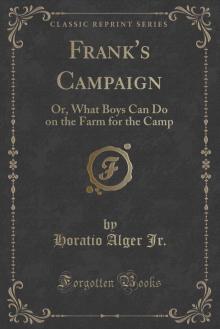 Frank's Campaign; Or, The Farm and the Camp
Frank's Campaign; Or, The Farm and the Camp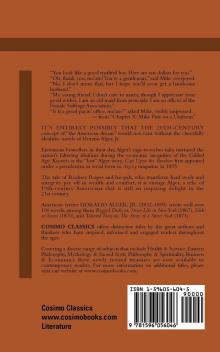 Cast Upon the Breakers
Cast Upon the Breakers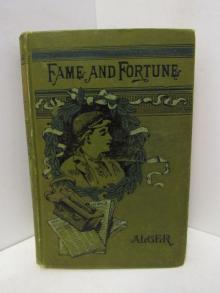 Fame and Fortune; or, The Progress of Richard Hunter
Fame and Fortune; or, The Progress of Richard Hunter The Errand Boy; Or, How Phil Brent Won Success
The Errand Boy; Or, How Phil Brent Won Success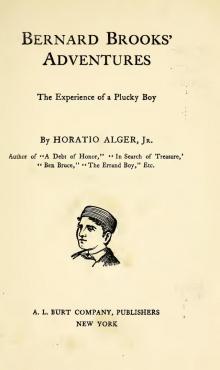 Bernard Brooks' Adventures: The Experience of a Plucky Boy
Bernard Brooks' Adventures: The Experience of a Plucky Boy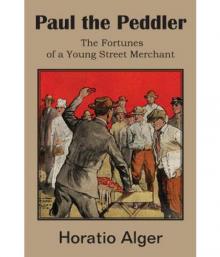 Paul the Peddler; Or, The Fortunes of a Young Street Merchant
Paul the Peddler; Or, The Fortunes of a Young Street Merchant Brave and Bold; Or, The Fortunes of Robert Rushton
Brave and Bold; Or, The Fortunes of Robert Rushton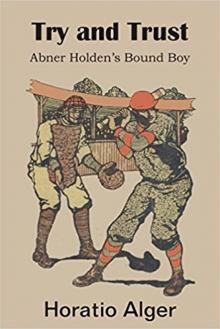 Try and Trust; Or, Abner Holden's Bound Boy
Try and Trust; Or, Abner Holden's Bound Boy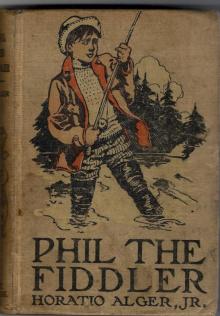 Phil, the Fiddler
Phil, the Fiddler In A New World; or, Among The Gold Fields Of Australia
In A New World; or, Among The Gold Fields Of Australia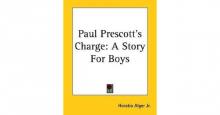 Paul Prescott's Charge
Paul Prescott's Charge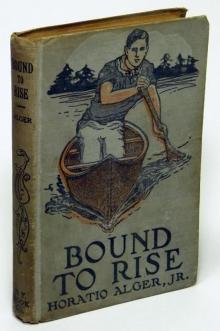 Joe's Luck; Or, Always Wide Awake
Joe's Luck; Or, Always Wide Awake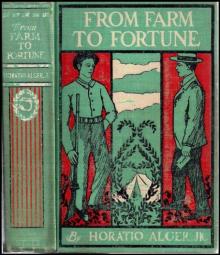 From Farm to Fortune; or, Nat Nason's Strange Experience
From Farm to Fortune; or, Nat Nason's Strange Experience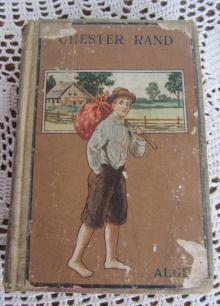 Chester Rand; or, The New Path to Fortune
Chester Rand; or, The New Path to Fortune Driven from Home; Or, Carl Crawford's Experience
Driven from Home; Or, Carl Crawford's Experience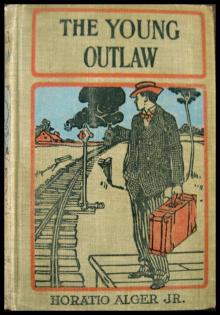 The Young Outlaw; or, Adrift in the Streets
The Young Outlaw; or, Adrift in the Streets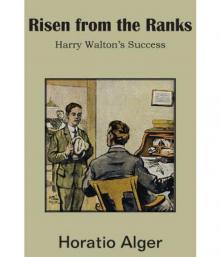 Risen from the Ranks; Or, Harry Walton's Success
Risen from the Ranks; Or, Harry Walton's Success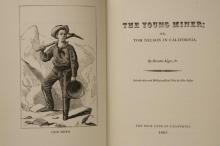 The Young Miner; Or, Tom Nelson in California
The Young Miner; Or, Tom Nelson in California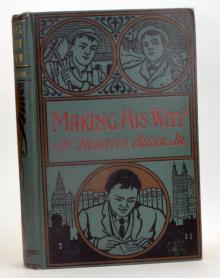 Making His Way; Or, Frank Courtney's Struggle Upward
Making His Way; Or, Frank Courtney's Struggle Upward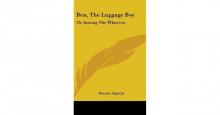 Ben, the Luggage Boy; Or, Among the Wharves
Ben, the Luggage Boy; Or, Among the Wharves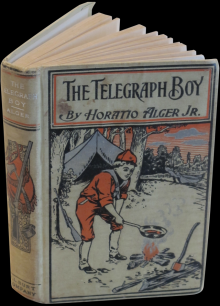 The Telegraph Boy
The Telegraph Boy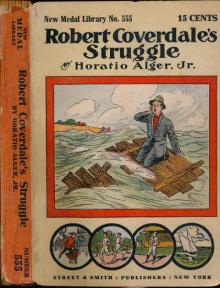 Robert Coverdale's Struggle; Or, on the Wave of Success
Robert Coverdale's Struggle; Or, on the Wave of Success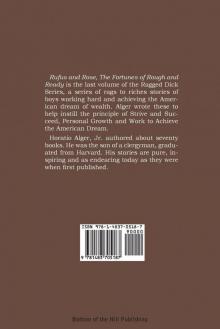 Rufus and Rose; Or, The Fortunes of Rough and Ready
Rufus and Rose; Or, The Fortunes of Rough and Ready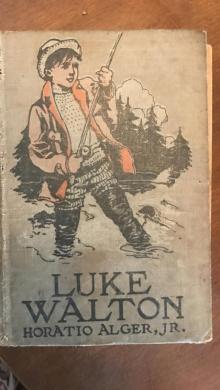 Luke Walton
Luke Walton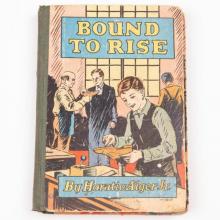 Mark Mason's Victory: The Trials and Triumphs of a Telegraph Boy
Mark Mason's Victory: The Trials and Triumphs of a Telegraph Boy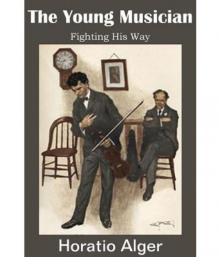 The Young Musician; Or, Fighting His Way
The Young Musician; Or, Fighting His Way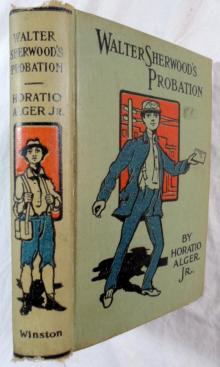 Walter Sherwood's Probation
Walter Sherwood's Probation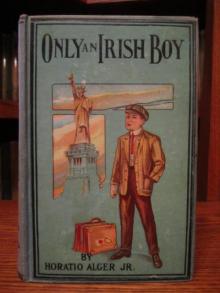 Only an Irish Boy; Or, Andy Burke's Fortunes
Only an Irish Boy; Or, Andy Burke's Fortunes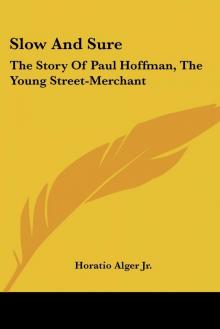 Slow and Sure: The Story of Paul Hoffman the Young Street-Merchant
Slow and Sure: The Story of Paul Hoffman the Young Street-Merchant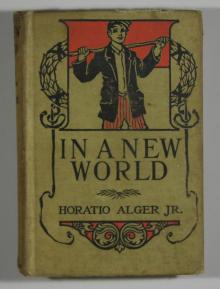 Herbert Carter's Legacy; Or, the Inventor's Son
Herbert Carter's Legacy; Or, the Inventor's Son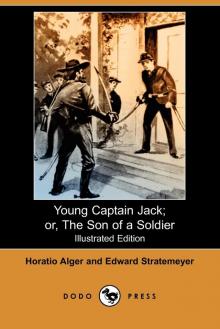 Young Captain Jack; Or, The Son of a Soldier
Young Captain Jack; Or, The Son of a Soldier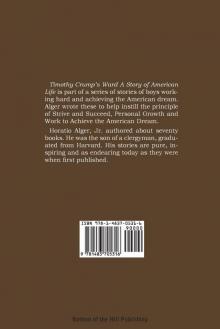 Timothy Crump's Ward: A Story of American Life
Timothy Crump's Ward: A Story of American Life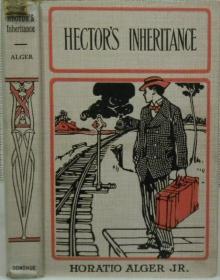 Hector's Inheritance, Or, the Boys of Smith Institute
Hector's Inheritance, Or, the Boys of Smith Institute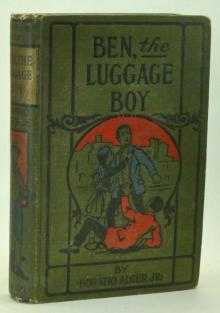 Ben's Nugget; Or, A Boy's Search For Fortune
Ben's Nugget; Or, A Boy's Search For Fortune